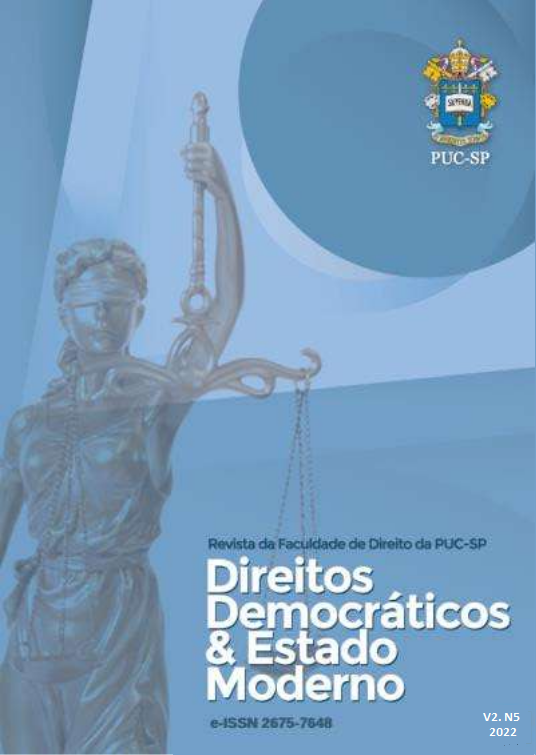Democracia en la nueva era
DOI:
https://doi.org/10.23925/ddem.v.2.n.5.58291Palavras-chave:
Democracia, Direitos humanos, Tecnologias, Digital, LiberdadeResumo
As novas tecnologias nos imergiram em um mundo interconectado antes impensável e repensando novos paradigmas para materializar nossos projetos e agendas de cooperação, tanto regionais quanto globais. A pandemia digitalizou os serviços e deu múltiplos usos às Tecnologias de Informação e Comunicação. A democracia é a forma de governo que caracteriza um estado cujo principal valor é a liberdade. Os valores republicanos, constitucionais e de direitos humanos são essenciais para sustentar e promover o estado democrático. O objetivo deste trabalho é discutir o impacto das Novas Tecnologias na sociedade, principalmente com a pandemia, e o papel da democracia, em um tecido social já bastante prejudicado, e que sofreu mais violações de seus Direitos Humanos a partir da pandemia do COVID 19. A metodologia é partir das bases gerais, dedutivas, para chegar a uma hipótese de trabalho seriamente argumentada, e depois partir com algumas conclusões específicas do que foi a retirada de liberdades e garantias processuais em uma pandemia . É neste Novo Renascimento que nos encontramos, com um mundo altamente técnico, inovador, mas com graves lacunas, não só digitais, mas também económicas e, sobretudo, emocionais. Nosso dever é construir um mundo melhor.
Referências
Declaración de La Plata: “Hacia la unificación de criterios para la protección de datos personales de niñas, niños y adolescentes”. Sitio web: http://oiprodat.com/declaracion-de-la-plata/. Fecha de consulta del Sitio: 11/6/2017.
Declaración Universal de los Derechos Humanos. Sitio Web: https://www.un.org/es/about-us/universal-declaration-of-human-rights. Fecha de Consulta del Sitio: 19/05/2022.
¿Que son los Derechos Fundamentales? Sitio Web: https://blog.oxfamintermon.org/derechos-fundamentales-cuales-son/#:~:text=utilizarlos%20con%20criterio!-,%C2%BFQu%C3%A9%20son%20los%20derechos%20fundamentales%3F,las%20personas%20por%20su%20dignidad. Fecha de consulta del sitio:19/05/2022.
Downloads
Publicado
Como Citar
Edição
Seção
Licença
Copyright (c) 2022 Direitos Democráticos & Estado Moderno

Este trabalho está licenciado sob uma licença Creative Commons Attribution 4.0 International License.

Este obra está licenciada com uma Licença Creative Commons Atribuição 4.0 Internacional.
Revista DD&EM - ISSN 2675-7648
















